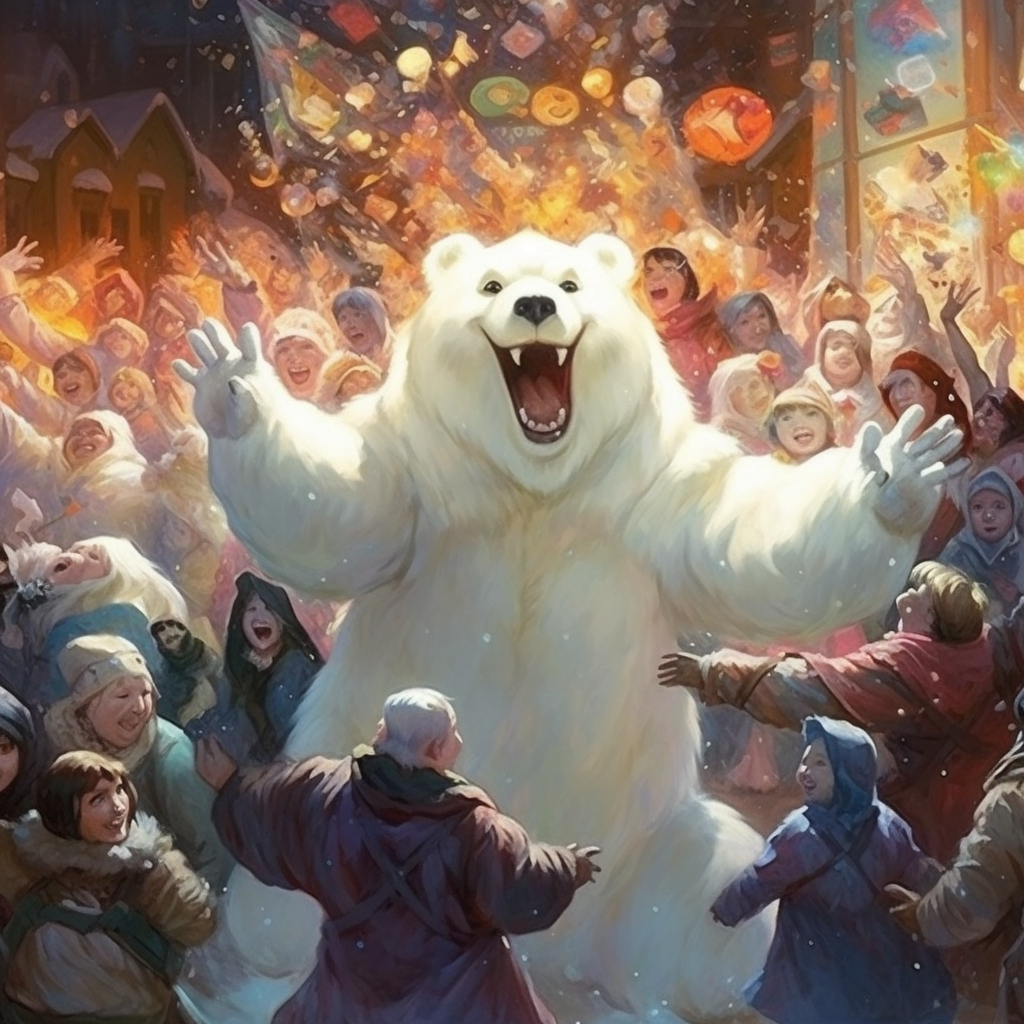In the throbbing heart of Nicosia, amidst the spectacle of Russian radio promotion, two Ukrainian refugees find themselves face-to-face with their haunting past.
Irina’s voice emerged from the quietude of their humble flat, a soft flutter breaking the silence. “Are you ready, Ilya?” She laced her fingers tighter into her husband’s, drawing upon his unspoken strength.
Ilya’s silent nod was enough, his solemn acquiescence all she needed to quell the surge of apprehension. With an air of stoic resolve, they stepped out, trading the cool shadows of their refuge for the radiant Cypriot sun.
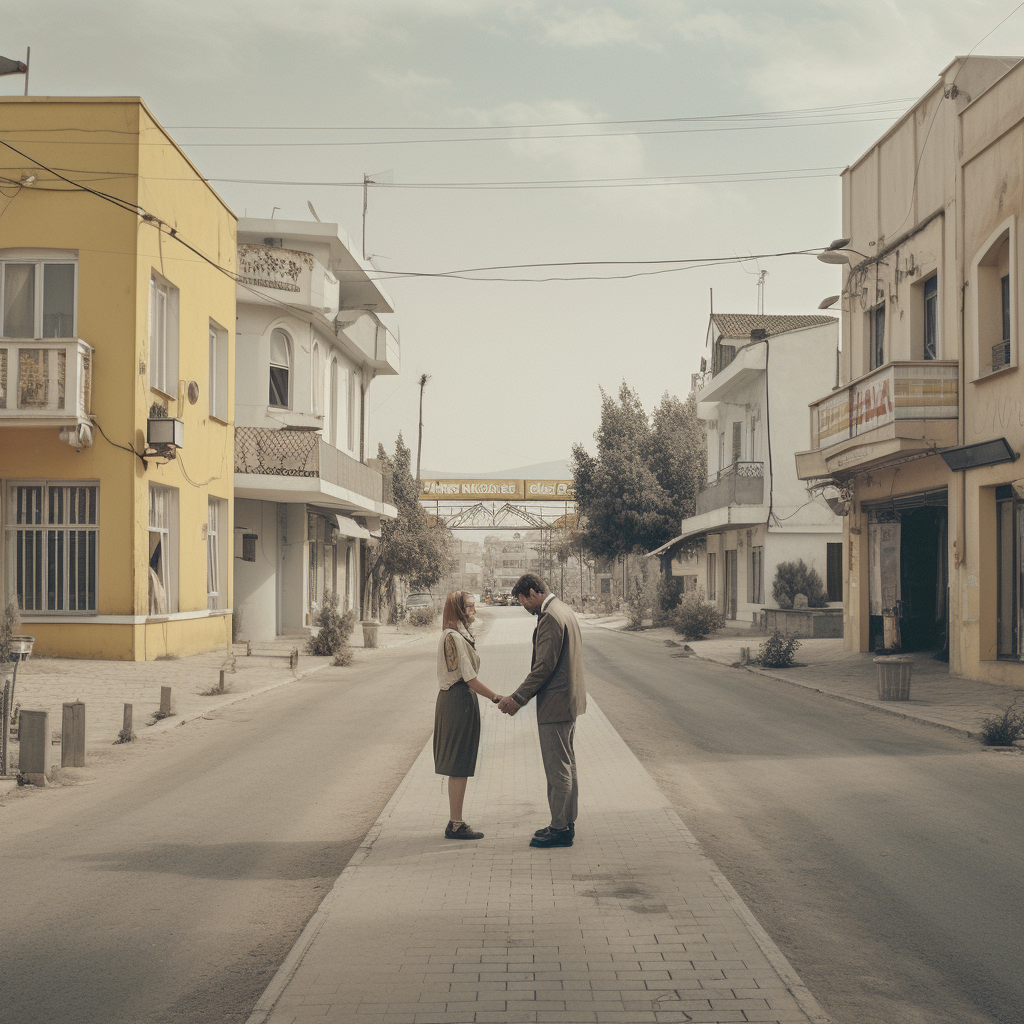
For far too long, Ilya and Irina had sequestered themselves away. The whispering winds of the Cypriot summer, however, tugged at their latent yearnings for the world outside, their cozy sanctuary seeming increasingly confining.
These Ukrainian refugees, forced away from their homeland by Russia’s aggression, had found little solace in the balmy Mediterranean climate. Instead, the warmth stood as a stark contrast to the frostiness that enveloped their hearts, a painful reminder of the chilling memories they harboured.
Their flight from home had led them to Poland first, a necessary though painful diversion, before a distant cousin provided solace in the form of refuge in Cyprus. The journey had tested their resilience, the experiences leaving invisible scars that bore into their very souls, the echoes of the past etched into the marrow of their bones.
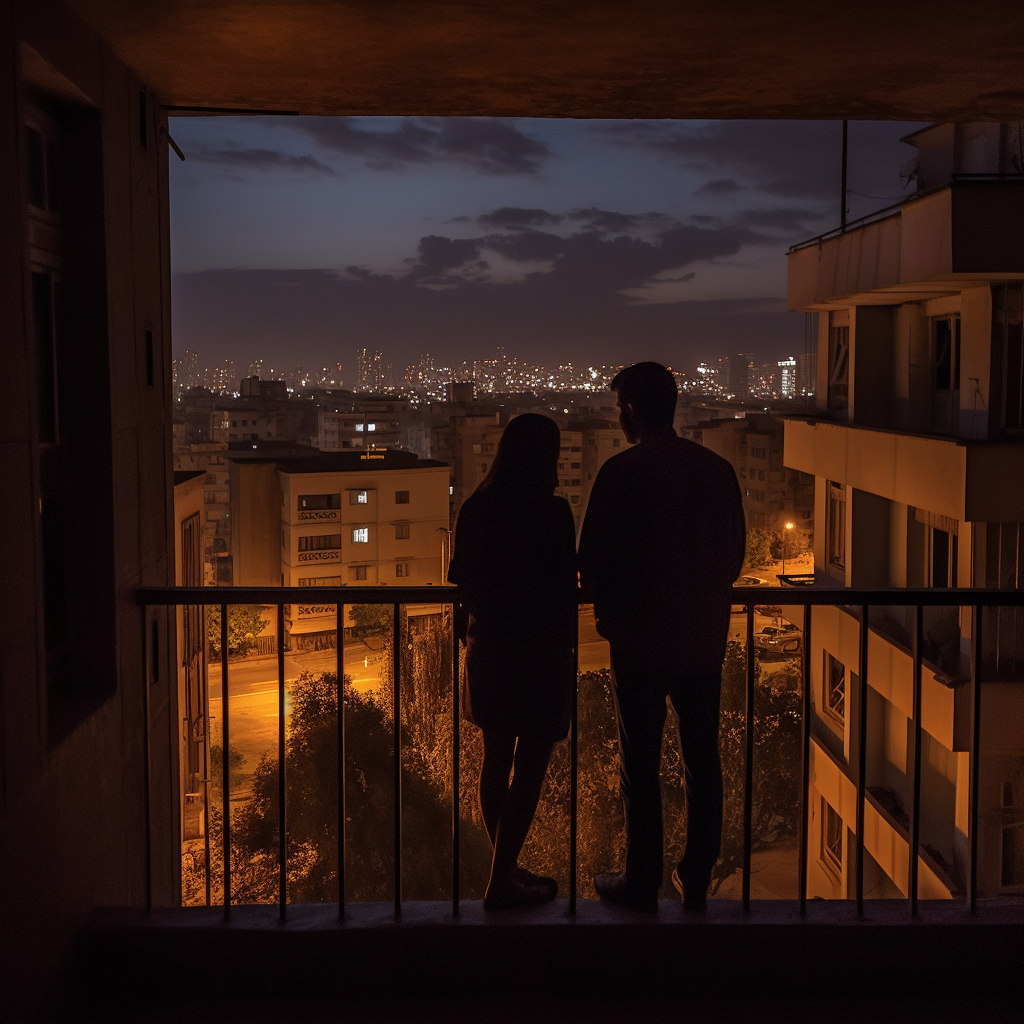
Indeed, today had a different hue, a unique tint that distinguished it from the monotony of their past few months. The playful whispers of the summer breeze seemed to be in a conspiratorial alliance with their restless spirits, nudging them towards a gentle adventure.
Today, they would break free from their self-imposed seclusion. Today, they would saunter down the very veins of the city, exploring the pulsating life of Nicosia’s vibrant Ledra Street.
Ledra Street wasn’t just any city lane; it was a living, breathing chronicle of the city’s turbulent history. Its cobblestones had felt the march of soldiers, the hopeful strides of peace negotiators, and the merry steps of everyday citizens caught in the great drama of existence.
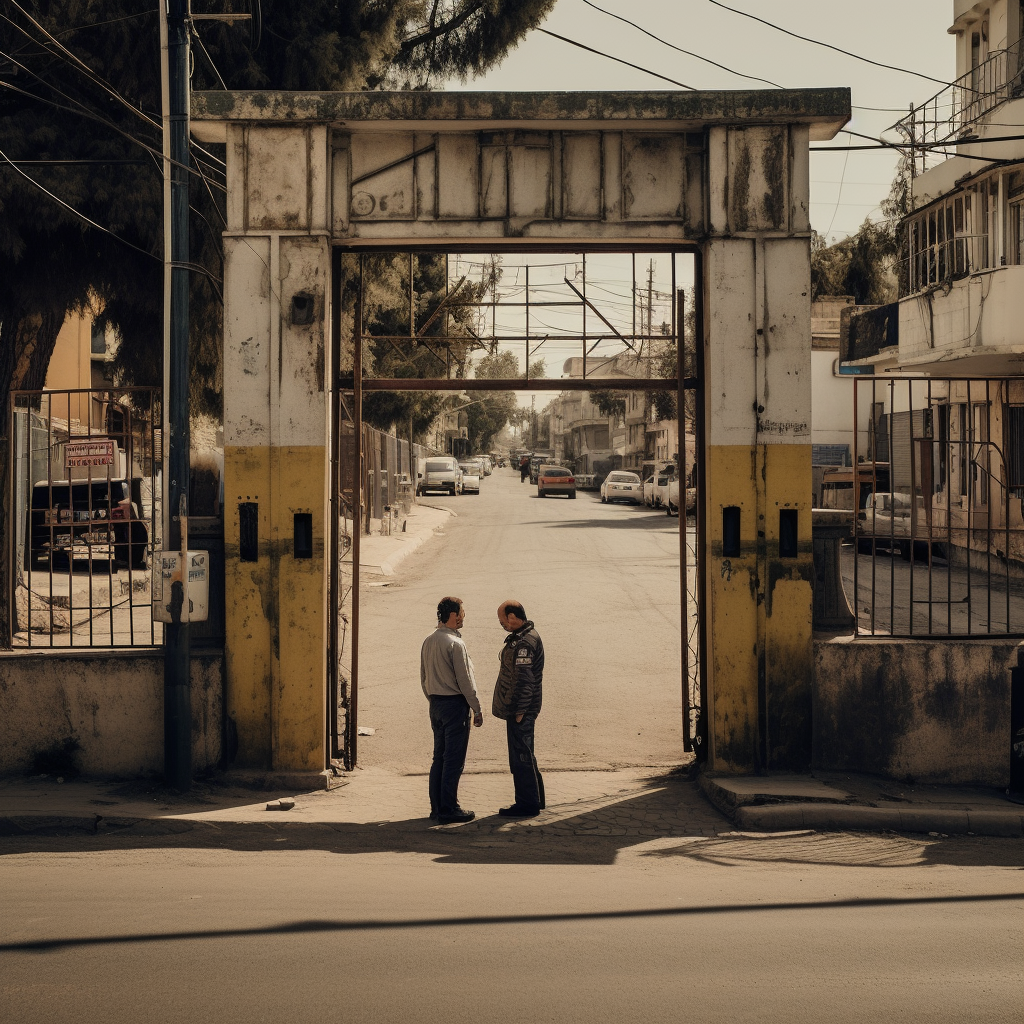
Named after the ancient city-kingdom of Ledra, and with roots dating back to the 6th century BC, it was a portal that had seen empires rise and fall. Over centuries, it had quietly observed as the Persians, Ptolemies, Romans, Byzantines, Venetians, Ottomans, and the British etched their narratives into the city’s rich history.
In more recent times, the street had become a poignant symbol of the city’s division, an alleyway cut into two by a ‘green line’ during the Cyprus Crisis of 1963-64. A divider and yet, a unifier, it saw the opening of the border in 2008 and since then, had been a silent witness to many a tale of reunions and farewells.
It was here, amid this tapestry of human endeavour and struggle, that the tender brush of the summer breeze led Ilya and Irina. As they ambled down this vibrant street, each cobblestone underfoot a testament to the city’s resilient spirit, the air around them was punctured by the thunderous chorus of amplified music.
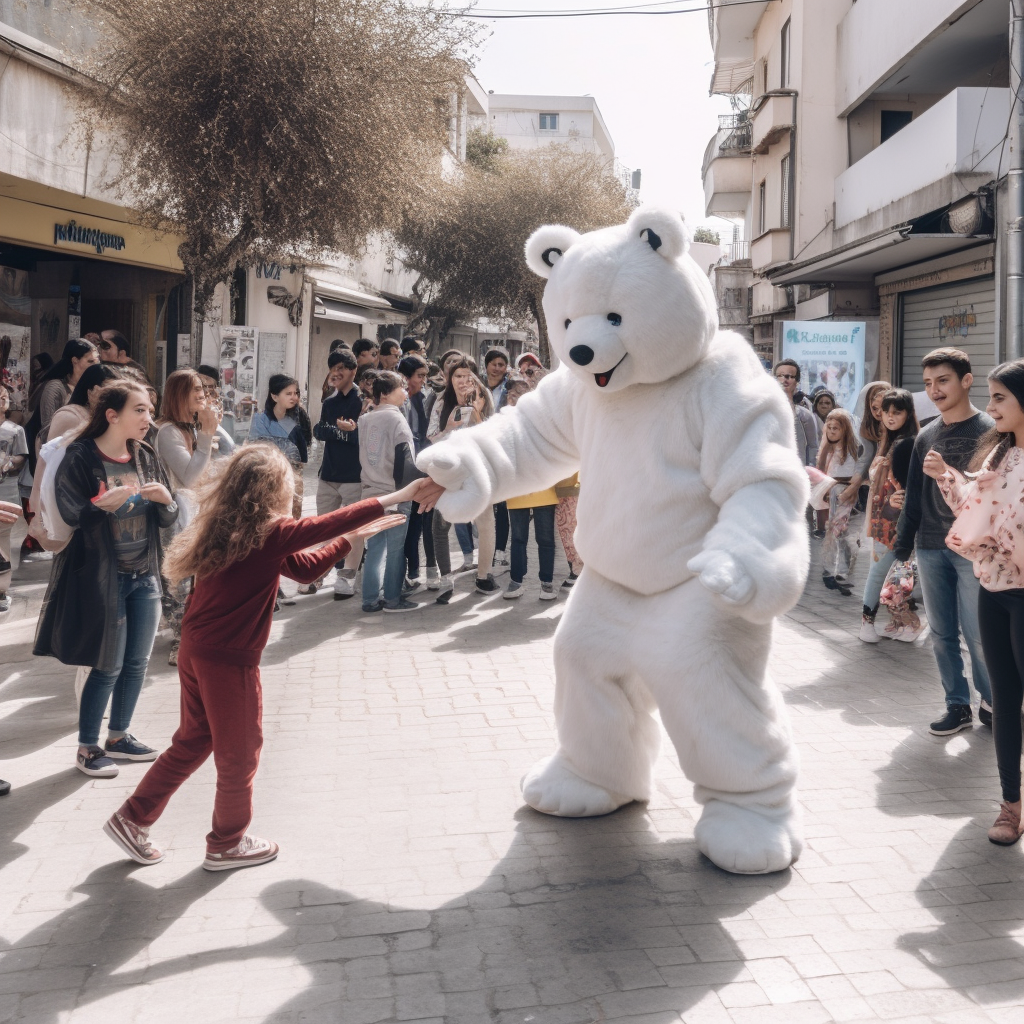
The source? An eye-catching, lively event promoting Russian Radio in Cyprus. A tiny stage decked with lights and banners was enough to dominate the view, while the street around it swarmed with dancing children, strolling families, and curious onlookers. And the soundtrack to this spectacle? A haunting remix of the Cranberries’ classic, ‘Zombies.’
As the sound washed over the historical edifice of Ledra Street, the past and the present intersected in a startling dance of irony. The rhythm of the vibrant spectacle and the pulsating street below it collided with the chilling echo of the song. The haunting melody weaved through the crowd, whispering tales of a war-torn past in the ears of an unsuspecting audience.
The lyrics clawed through the festive ambience, a chilling reminder of the horrors they had escaped. “In your head, in your head, they are fighting, with their tanks and their bombs, and their bombs, and their guns,” the words washed over them, stirring up an onslaught of brutal memories of a shattered Ukraine.
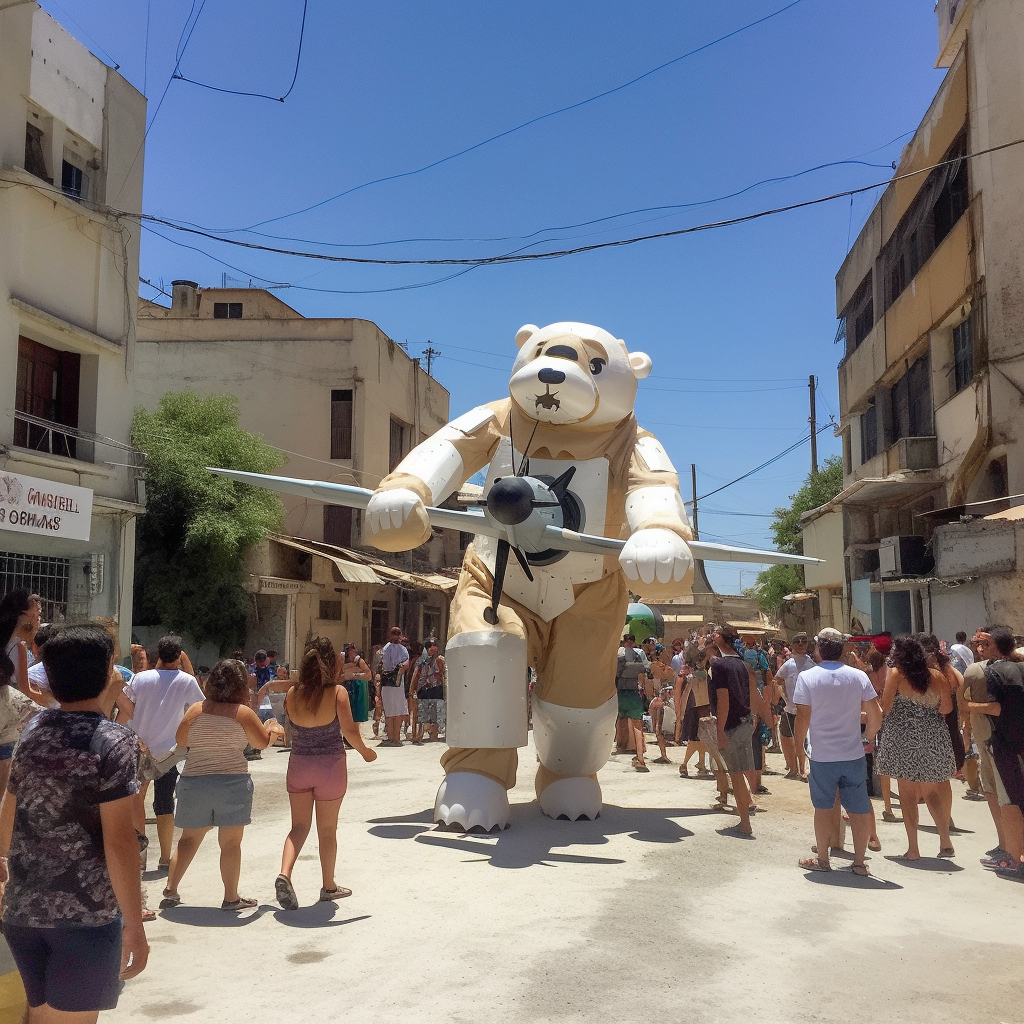
“Irina… the song,” Ilya managed to mumble, a harsh knot forming in his throat. “It’s about war, isn’t it?”
“Yes,” Irina conceded, the acknowledgement stinging her eyes. “It’s about our war, Ilya. The war we survived.”
As the resounding notes of the melancholic anthem reverberated through the ancient Ledra Street, an absurd spectacle emerged in the midst of the crowd. Two gigantic white bear mascots cavorted around, their awkward, exaggerated movements seemingly choreographed to the rhythm of the chilling song.
The comical dance of these larger-than-life caricatures stood in stark contrast to the grim soundtrack that echoed around them, a discordant image against the mournful cadences of ‘Zombies.’ Their movements, a caricature of merriment, seemed almost sacrilegious to the sober melody, each frolic an affront to the underlying narrative of the song.
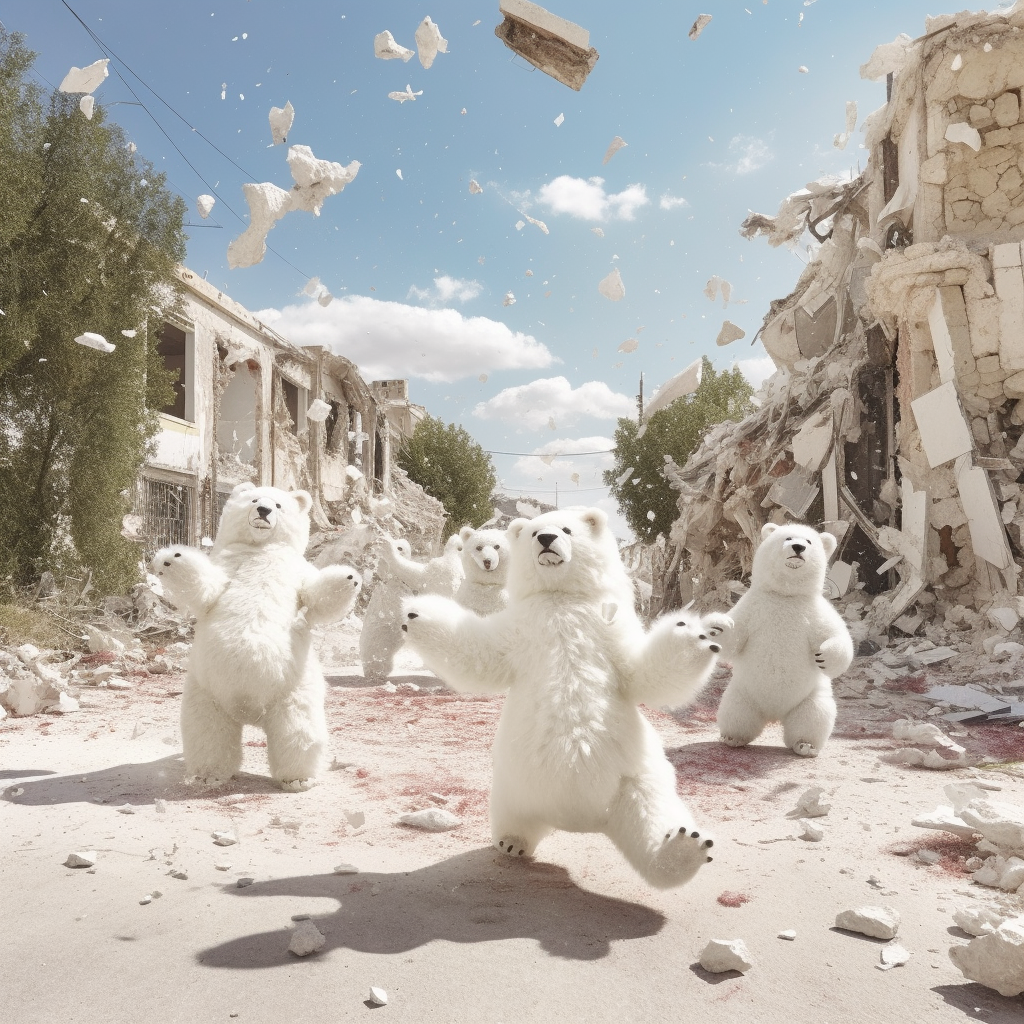
Around the dancing bears, Russian children revelled in their innocence. Their carefree laughter and joyful prancing formed a protective bubble around them, a blissful ignorance that shielded them from the gravity of the haunting music that filled the air.
As Ilya and Irina watched this surreal tableau, an unsettling vision flickered in their minds, prompted by the menacing chorus of the song. They imagined the ghastly scene of bombs raining down from the skies, targeting the frolicking white bears. Each imagined explosion, stark and graphic, dismembered the playful creatures, shredding their fabricated bodies into pieces, faux fur mixing with real ashes.
The horrific imagery played in their minds in slow motion, oddly in sync with the stinging lyrics of the song. It was a bizarre juxtaposition that had them shuddering — the disquieting imagery of destruction blending with the pulsating beats of the haunting anthem.
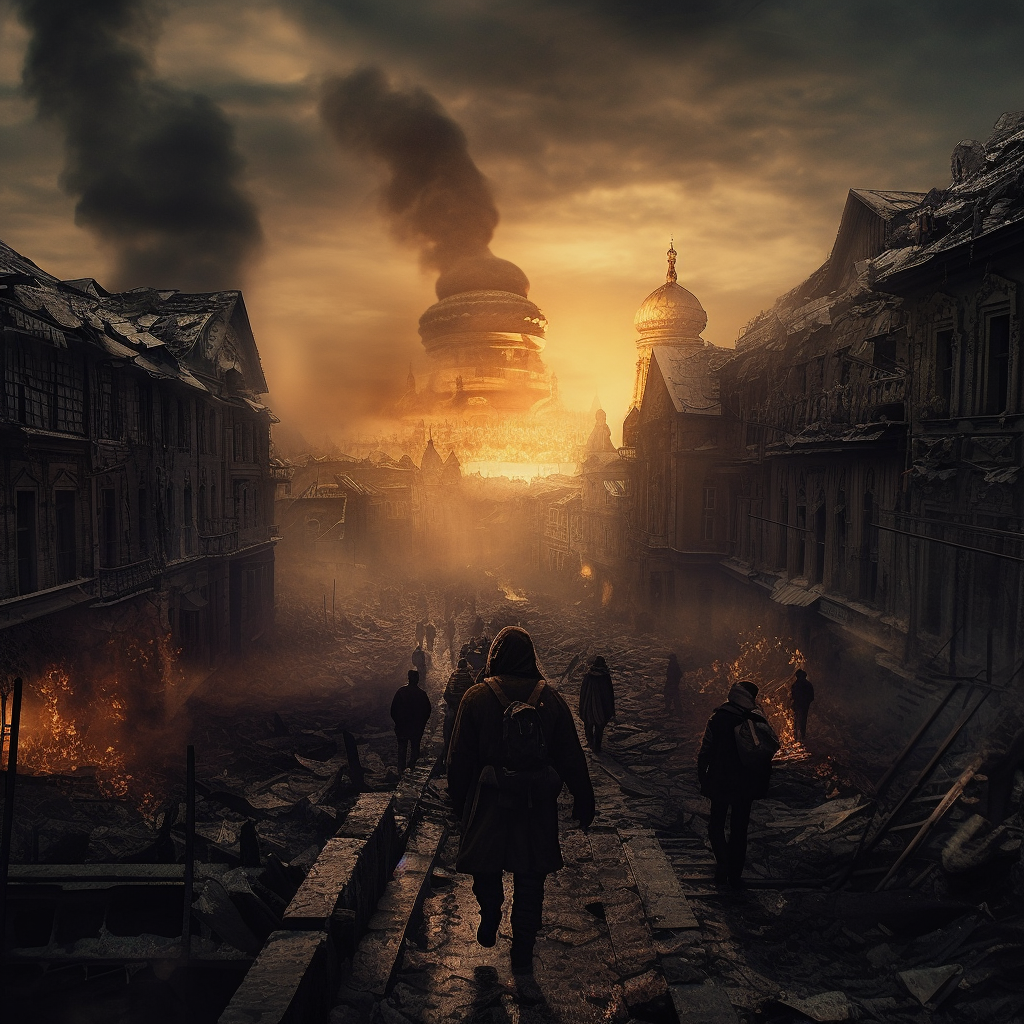
Yet, the macabre illusion dissolved as swiftly as it had formed, quickly replaced by the ongoing spectacle. The bears continued their dance, and the children their prancing, all unaware of the grim fantasy that had momentarily hovered over them. It was a bizarre feeling, a chilling undercurrent to the ongoing festivities, one that left them feeling disoriented amidst the lively rhythms of the unforgettable ‘Zombies’ song.
“They don’t know, do they?” Ilya murmured, watching the children play. “They don’t understand what the song means.”
“No, Ilya,” Irina whispered, her gaze lingering on the scene. “And I hope they never have to.”
The song’s chorus haunted their steps, the lyrics echoing in the crevices of their minds. “In your head, in your head, they are crying…” The ‘they’ in the lyrics took on familiar faces, their friends, their neighbours, all those who had perished in the assault on Kyiv.
As the surreal spectacle of dancing bears and oblivious children receded into the backdrop, the lingering echoes of ‘Zombies’ filled the space it left behind. The song, a relentless reminder of their fractured past, pulsed through the air, its haunting strains colouring the summer day with the muted shades of their old wounds.
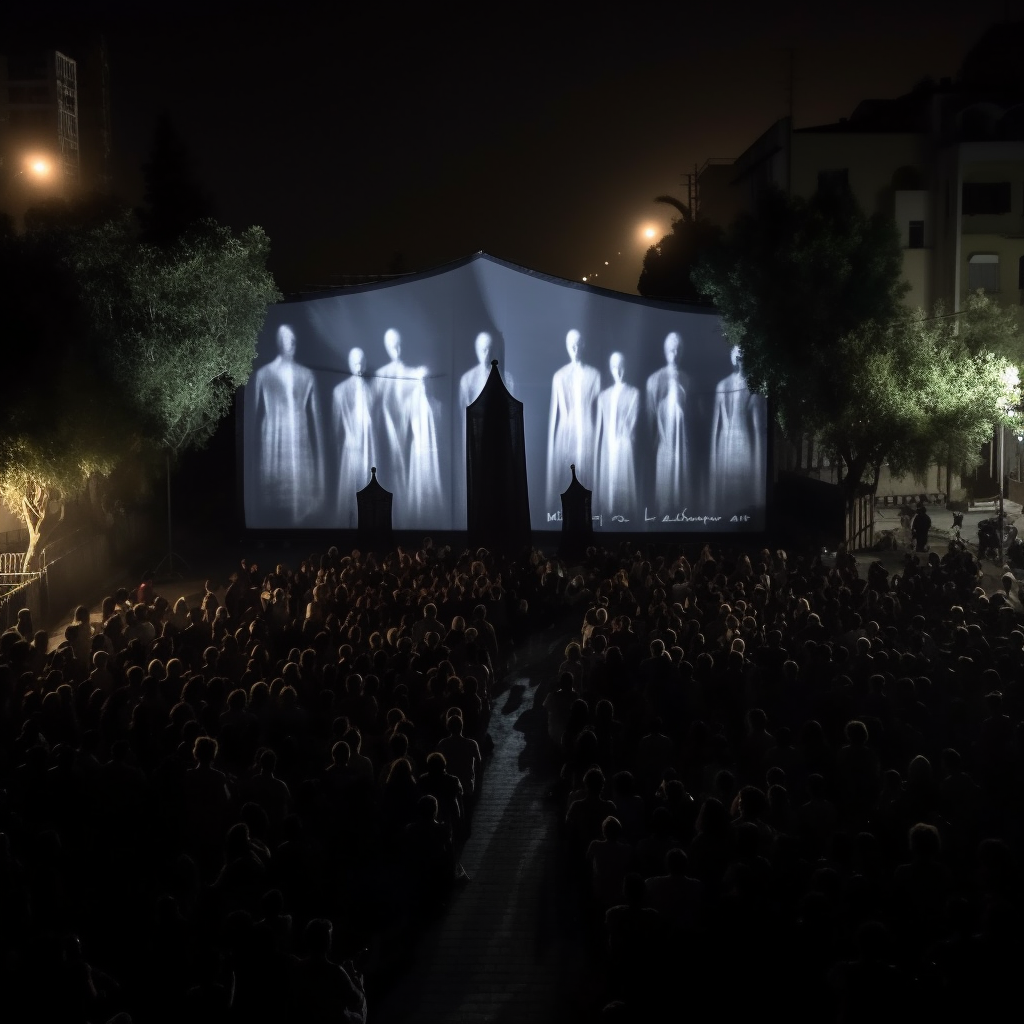
The Cranberries’ classic was more than just a melody to Ilya and Irina; it was a lamentation set to music, a grim tapestry of strife and conflict. The song itself was a poignant reminder of another struggle, the Irish Troubles, that had painted the late 20th century with streaks of violence and dissent. It spoke of senseless fighting, of lives lost and communities fractured, a narrative all too familiar to the Ukrainian couple.
The song’s chorus, “In your head, in your head, they are fighting,” was a chilling echo of their experiences, a melodic mirror reflecting their harrowed past back at them. It was an auditory ghost, the spectral strains mingling with their memories of a war-torn Kyiv, further blurring the line between past and present.
Ahead of them, the border crossing loomed, a stark symbol of another conflict – the long-standing political tension between the Greek Cypriots and Turkish Cypriots. This was a physical embodiment of division and unresolved discord, a visual echo of their own troubled history.
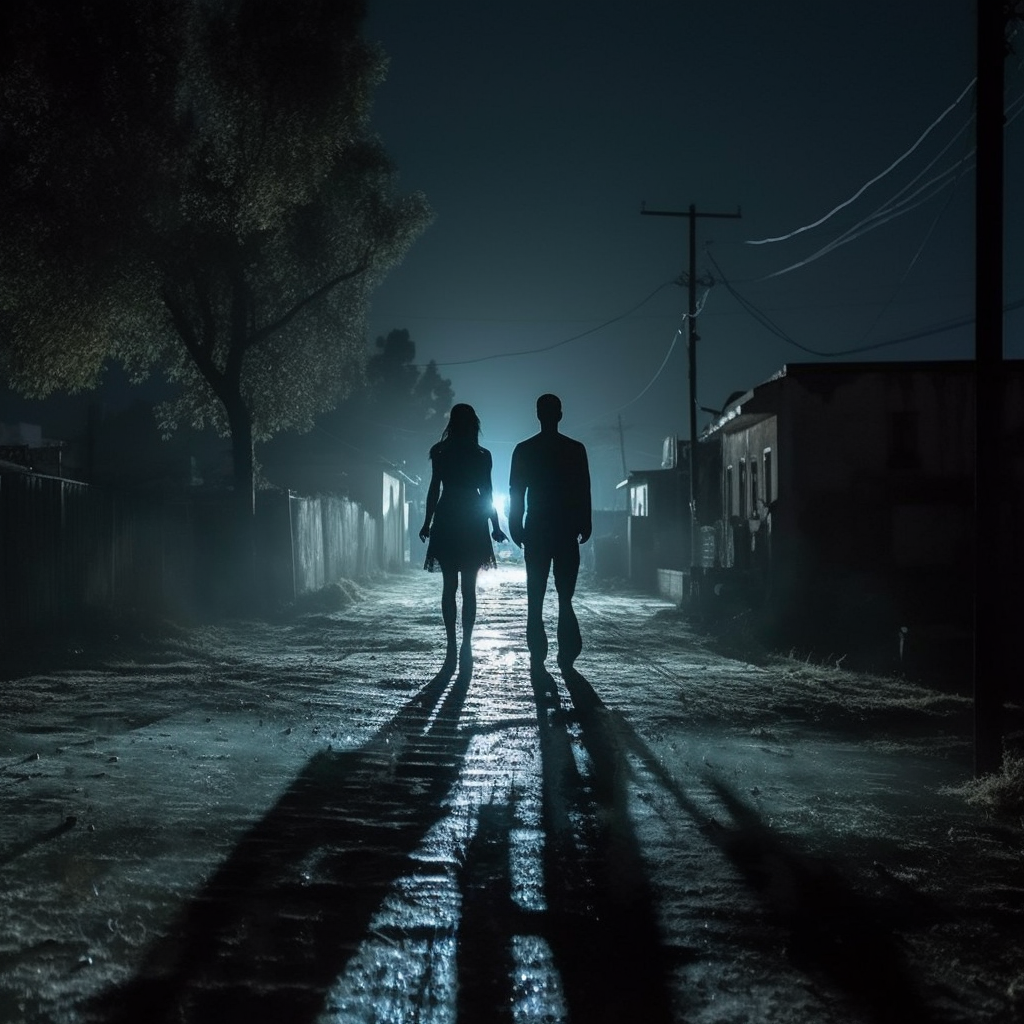
This border, much like the invisible one that separated their present lives from their past, represented a divide instigated by political forces beyond their control. As they stepped towards it, the border was no longer merely a geopolitical division, but a mirror reflecting their own displaced reality.
The echoes of ‘Zombies,’ now a haunting refrain in their minds, underscored this poignant moment, the rhythmic beats pulsating in time with their tentative steps towards the crossing. In the dance of these echoing notes and their quiet footsteps, Ilya and Irina found themselves caught between two worlds, two histories, and two conflicts – their own, and that of their new refuge.
“You know, Irina,” Ilya said, looking back one last time at the carnival they left behind. “This border… it’s just like us, caught in the middle of someone else’s fight.”
“We’ll get through, Ilya,” she reassured him, her grip tightening around his hand. “
“Like we always have,” she added, the conviction in her voice resonating with an unspoken promise of hope.
As they crossed the threshold, they left behind the boisterous spectacle of the Russian Radio event and stepped into the tranquil calm of North Cyprus. This serene landscape stood in stark contrast to the raucous chaos they had just witnessed, a silent testament to the countless stories that unfolded amid the region’s political unrest.
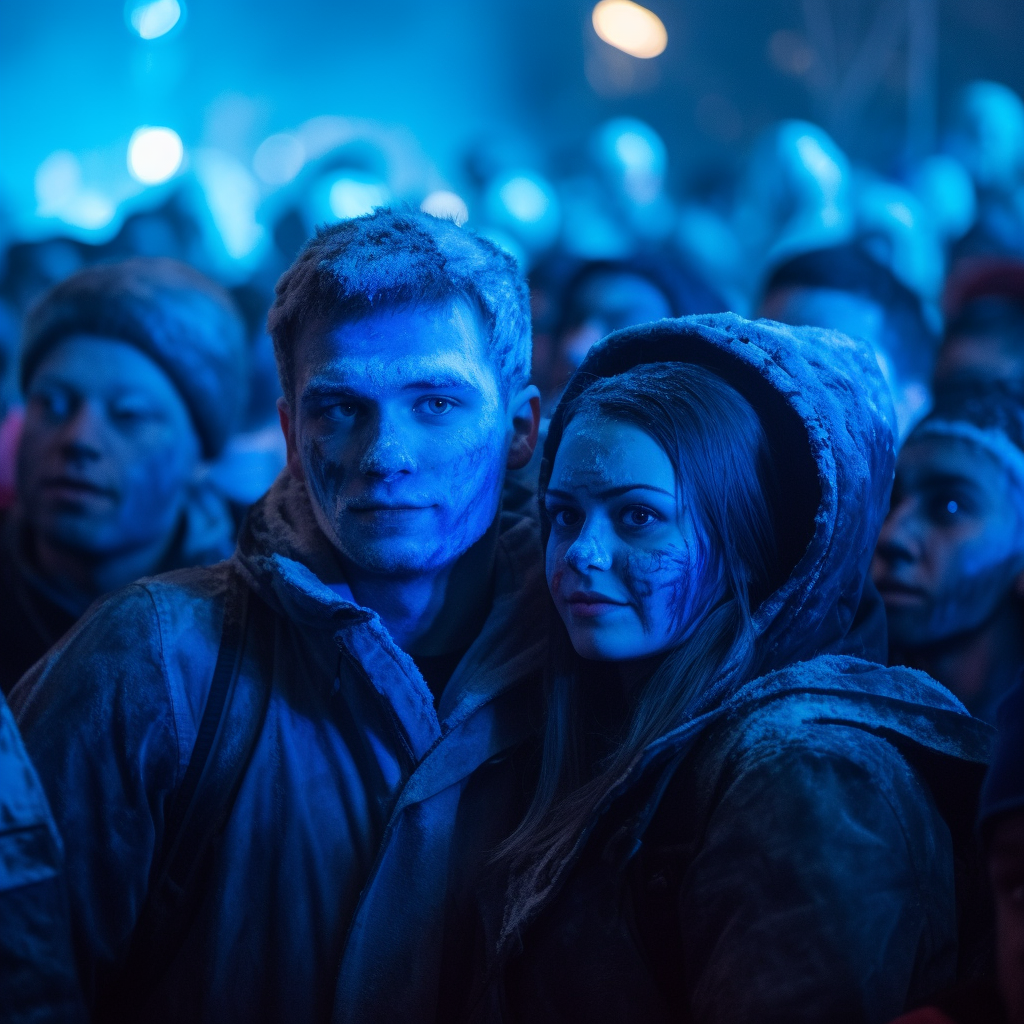
As they navigated the quiet streets, the poignant echoes of the Cranberries’ song followed them. The lyrics served as a chilling serenade, the verses repeating: “With their tanks, and their bombs, and their guns, and their drones, in your head, in your head, they are dying…”
Each word was a jab to their hearts, the sorrowful verses a testament to the destruction they had witnessed, the friends and loved ones they had lost. Yet, it was these words, this song, that fuelled their resolve, serving as a bitter reminder of their survival.
Their journey had been one of fear, loss, and courage, a symphony of pain, resilience, and hope. The melody of their past, though dissonant and painful, was woven into the very fabric of their beings. And despite everything, they had survived.
Their gaze met, their hearts echoed the same conviction: they would continue to survive. The melody of their resilience, their shared journey from Ukraine to Cyprus, would grow stronger than the dissonant chords of war. No matter the borders they had to cross, no matter the conflicts they had to endure, they had each other.
And in this moment, under the warm Cypriot sun, that was more than enough.
All images were generated using Midjourney
